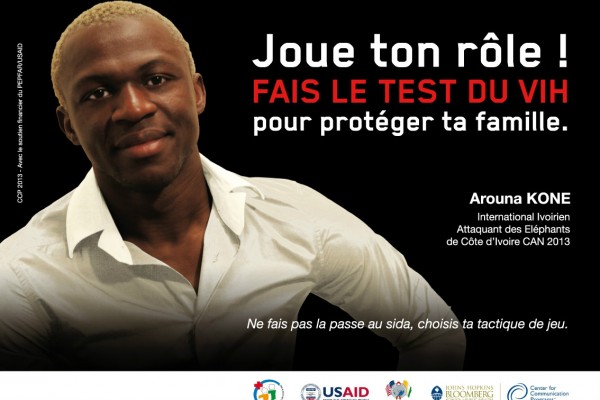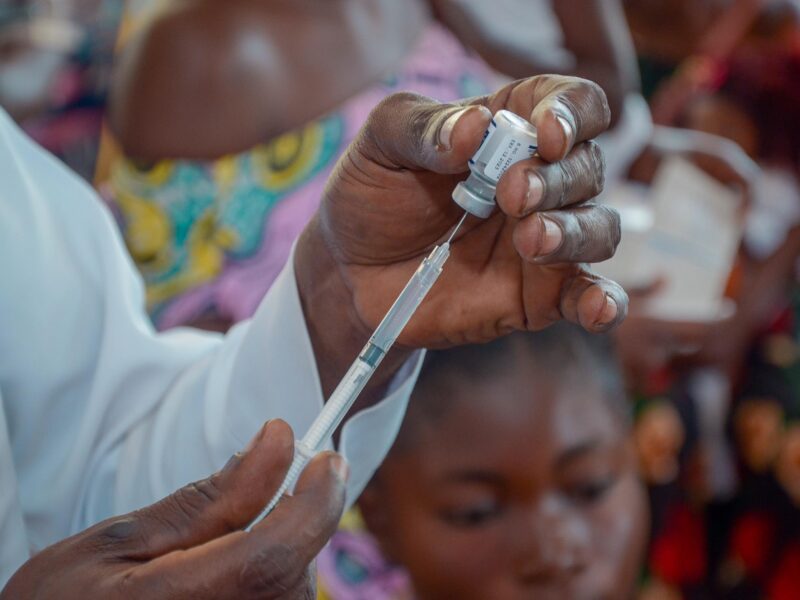All eyes in Africa were on five stadiums in South Africa where, from January 19 through February 10, the top national soccer teams from across the continent were competing for the Africa Cup of Nations. Arouna Koné, a forward on the team from Côte d’Ivoire, urges men to join the excitement, saying, “Play your role. Get tested for HIV to protect your family.”
Although Côte d’Ivoire lost the competition to Nigeria last week, it continues to fight the battle against HIV.
The PEPFAR-funded Active Prevention and Transformative Communication (PACT) project in Côte d’Ivoire is using the tournament communication campaign to promote couples’ testing for HIV. Through posters, newspaper inserts and television spots, the campaign encourages men to become more involved in issues of reproductive health and to protect their families by getting tested with their partners.
Koné and Alain Gouamené, goal keeper and captain of the national team that took the Cup in 1992, have provided the campaign with role model images and strong voices. In one campaign poster, Gouamené reaches out to husbands and fathers, explaining, “Your wife is your safe partner. Get tested for HIV so you can live your love with peace of mind.”
Côte d’Ivoire’s HIV prevalence is estimated to be around four percent in the adult population, which makes it the most affected country by the pandemic in West Africa.
PACT is a two-year program implemented by Johns Hopkins Bloomberg School of Public Health Center for Communication Programs (JHU∙CCP) in partnership with USAID, PEPFAR, the Government of Côte d’Ivoire and local partners. The goal of the project is to reduce HIV infections, support national programs to improve the quality of care and treatment services and improve the lives of people living with HIV/AIDS. PACT is designing SBCC programs and building the capacity of the Ministry of Health and other partners to develop and implement interventions.




